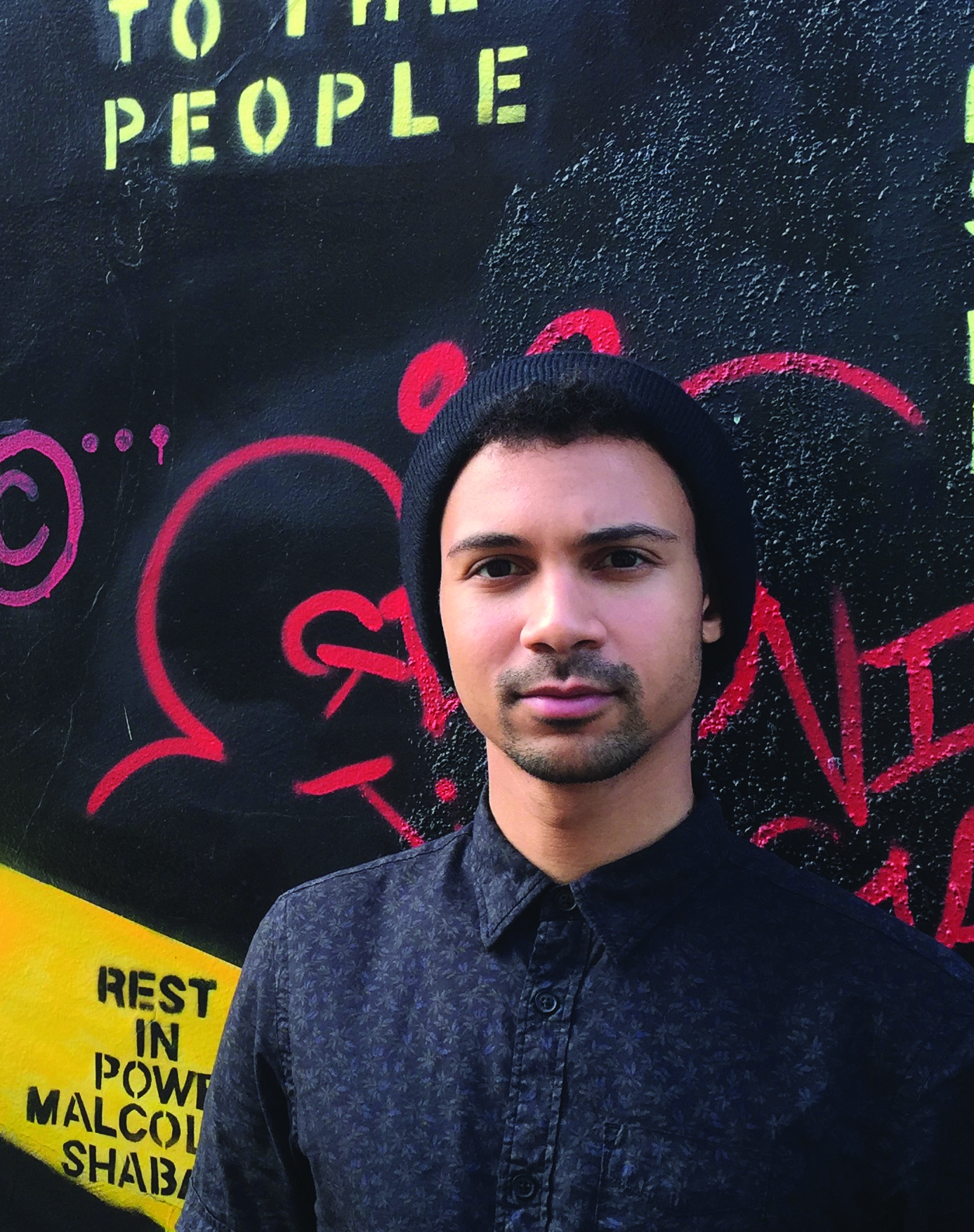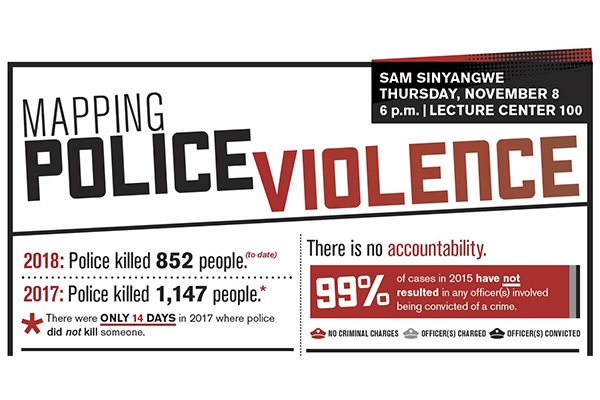Mapping Police Violence: Data scientist and “Pod Save the People” co-host Samuel Sinyangwe will speak at Benjamin Center event, Nov. 8 at SUNY New Paltz

The Benjamin Center at SUNY New Paltz is pleased to welcome racial justice activist, policy analyst and podcaster Samuel Sinyangwe to campus to discuss his work as co-founder of Mapping Police Violence, a research collaborative that gathers comprehensive data on police killings in the United States.
Mapping Police Violence with Samuel Sinyangwe will take place on Thursday, Nov. 8,
at 6 p.m. in Lecture Center 100, and is free and open to the public.
Sinyangwe is a data scientist who works with communities of color to fight systemic racism through cutting-edge policies and strategies. He teamed with fellow activists DeRay Mckesson, Johnetta Elzie and Brittany Packnett following the 2014 shooting of Michael Brown in Ferguson, Missouri, and together they founded Mapping Police Violence, a data-driven effort to quantify the impact of police violence in communities.
The Mapping Police Violence network has collected and made accessible a wealth of data about police violence, crowdsourced from the most comprehensive and impartial databases on police killings in the country. Their findings include:
- To date, 852 people have been killed by police in 2018.
- There were only 14 days in 2017 on which no person was killed by police.
- Black people are three times more likely to be killed by police than white people.
- Of 1,147 people killed by police in 2017, 25 percent were black, despite black people making up only 13 percent of the population.
- Where you live matters: Police in the nation’s 13 largest city police departments kill black men at higher rates than the overall national murder rate.
- It’s not about crime: Levels of crime in U.S. cities do not correlate with the rate of police killings in those cities.
In his presentation at New Paltz, Sinyangwe will discuss these findings and his reflections on the broader movement for accountable policing.
“Mapping Police Violence” with Samuel Sinyangwe is an example of The Benjamin Center’s ongoing use of applied research to inform public policy. For more information on The Benjamin Center and its regional initiatives, visit www.newpaltz.edu/benjamincenter.

This event is co-sponsored by the College of Liberal Arts & Sciences, the Resident Hall Student Association, the SUNY New Paltz Educational Opportunity Program, the Diversity & Inclusion Council, the Division of Student Affairs, and the Departments of Geography, History, Political Science and Sociology.
About Samuel Sinyangwe
Sinyangwe graduated from Stanford University in 2012, where he studied race, racism and the U.S. political system. He has dedicated his career to helping city leaders, youth activists and community organizations develop city-wide agendas to achieve quality education, health and justice for young black men.
In addition to their work with Mapping Police Violence, Mckesson, Packnett and Sinyangwe are co-founders of Campaign Zero, a platform for advancing reform proposals to end police violence.
Along with writer Clint Smith, they are also the hosts of the “Pod Save the People” podcast, one of the most popular news and politics podcasts in the U.S.

